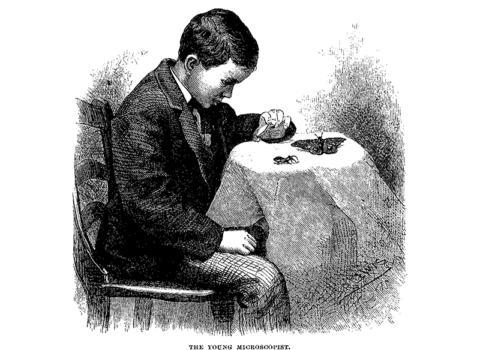God help me, but I had to laugh when I heard the news that Barack Obama had named Rahm Emanuel as White House chief of staff. What else could I do? Without even so much as a symbolic gesture in support of reform, the great agent of “change” immediately selected as his chief political enforcer a figure who epitomizes the Washington consensus of the past two decades—pro-“free trade,” pro-Iraq invasion/occupation and, perhaps most importantly, pro-pork barrel.
Which isn’t to say that Emanuel does not possess great talents essential to the success of an Obama administration. It just depends on how you define success. If Emanuel’s legendary aggressiveness were put to work in the service of “good government,” he might, indeed, do wonderful things. But I somehow doubt that’s what Obama has in mind for his friend from Chicago as he embarks on his 2012 re-election campaign.
Like Obama, Rahm Emanuel was launched in politics by the Daley machine, but he really made his name in the Clinton Administration as one of three principal White House lobbyists for the North American Free Trade Agreement, in 1993. Working alongside Mayor Richard M. Daley’s brother, William, and then-U.S. Trade Representative Mickey Kantor, Emanuel developed a reputation for having “a personality that killed plants on contact,” in the words of Margarita Roque, a former House staffer.
I can confirm Roque’s assessment, since in my own interviews with Emanuel, he outdid himself in ferocious candor. Asked to describe the effectiveness and reliability of his pro-NAFTA allies at the Business Roundtable, Emanuel was effusive in his praise of Allied Signal Chairman Larry Bossidy and a few others at Boeing and IBM. But as for “the rest of business — not worth a bucket of warm spit.”
Ordinarily, I might appreciate such a remark, but Emanuel was only expressing a certain type of politician’s contempt for anyone who is not a politician or their surrogate—for people insufficiently ruthless to “get the job done,” as Obama puts it. That Emanuel dared to say this during his brief tenure as an investment banker only accentuates his sense of superiority over the mere mortals who live outside the charmed triangle of Capitol Hill/K Street/Democratic Party power.
To be sure, a President Obama needs a henchman—but it’s important to know to what end. Like H.R. “Bob” Haldeman, Richard Nixon’s chief of staff, Emanuel will no doubt involve himself in many pressing matters of state, from maintaining the status quo in the Mideast to deciding which campaign contributor gets to be ambassador to Sri Lanka.
But in RahmObama world, it’s the political tasks that always come first, foremost among them rewarding your friends and punishing your enemies. At the top of a very urgent list of priorities will be thanking Mayor Daley for his early endorsement of Obama during the primaries—preferably with a goody guaranteed to create a lot of patronage jobs, such as bringing the 2016 Olympic games to the Windy City.
As a congressman and chairman of the House Democratic Caucus, Emanuel has reached deep into the pork barrel, and last year he defended an “earmark” that permitted the rebuilding of a bridge in his district “that not only was rated as deficient but also was identified by the Department of Homeland Security as a major evacuation route in case of a terrorist attack on Chicago.” Posing a largely rhetorical question, Emanuel wrote: “Does that make me an ‘earmark thug’ or a congressman who took care of a critical need in his district?”
It’s unclear what would motivate Al Qaeda to target Illinois’s 5th Congressional District—why bother hitting Wrigley Field and the Cubs when they’re already doomed?—but what is clear is that Emanuel knows how to game the system. What’s more, like his tutor, Mayor Daley, he understands the political value of “terrorism” to accomplish important civic improvements. In 2003, Daley unilaterally tore up the runway of Chicago’s lakefront airport, Meigs Field, in the middle of the night, so he could reclaim the land for a park. As justification, the mayor cited the threat of terrorist attack (from the air), even though neither Secretary of Homeland Security Tom Ridge or his agency were ever consulted and Ridge declared himself “disappointed” by the Meigs shutdown.
With all this, I can’t deny feeling a kind of admiration for Emanuel. All through the 2008 campaign, he performed a balancing act—never publicly supporting Obama until Hillary Clinton dropped out—worthy of a professional ballet dancer. In fact, Emanuel was a ballet student when he was growing up in suburban Chicago, good enough to be offered a scholarship by the Joffrey Ballet. As it happens, I spent a lot of time as a kid at the studio where he trained, the Evanston School of Ballet, watching my sister, a future professional, take class.
It would be easy to suggest that Emanuel’s tough-guy behavior is a case of overcompensation for having spent so much of his young life in what some might view as a “feminine” milieu. I don’t see it that way, even though I resisted occasional recruiting attempts by the school’s co-founder, Phyllis Wills, for the usual “that’s too sissy” reason.
Anybody familiar with the ballet world knows that the small number of dancers who make a paying career of it are the equivalent of professional athletes—every bit as accomplished as the best football, basketball and track stars—and not sissies at all. In ballet, the self-discipline and physical training required to “get the job done” are not for weaklings.
Thus, Obama may well have done himself a favor by picking a former ballet man to run the White House. We can only hope that if Emanuel does his grands battements in the Oval Office, he doesn’t accidentally kick over the red phone and start a war.



